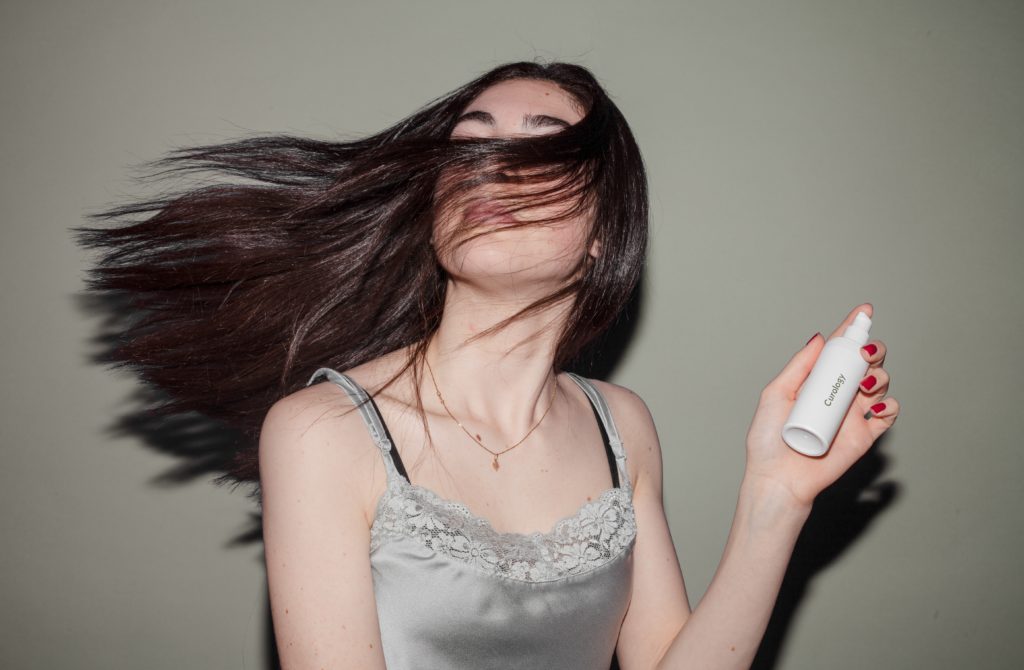The Science Behind It
You might think that physical appearance should have nothing to do with your self-concept, simply because there’s more to a person than just the looks.
However, studies show us otherwise. In fact, one research has proven that self-care, masculinity or femininity and pleasantness affects the level of a male or female’s attractiveness. This means that if you look as if you are taking care of yourself, you have the masculine and feminine look in you and you are pleasant, then people will generally regard you as attractive. Thus, if it seems to them that you don’t take care of your physical appearance, such as your hair, then they will not find you attractive. Hard as it sounds, but this has been proven by science.
Another research proves that even though most people would agree that we should not “judge a book by its cover,” most human beings still judge a person based on their appearance. The same research found out that our behaviour towards another person is usually the effect of how we perceive their looks. The data explains that our perception of others largely determine whom we help, hire, or ask for a date.
Effects of ‘judgment based on appearance’ on one’s emotion
That’s why we were not surprised when we read about a study conducted in one of Europe’s top hospital/univerity, the Charité – Universitätsmedizin in Berlin. In this study, they found that hair loss resulted to an “enormous emotional burden” on the self-esteem of men. Worst, some of them had psychological disorders like trichotillomania and body dysmorphia because of their hair loss.
If you think about it, these men judged themselves negatively because of their looks, particularly their thinning and balding hair.
Top three effects of appearance on one’s emotions
Feeling Isolated

When a person is judged, either by themselves or others because of his or her appearance, it produces the same effect on their emotions as discrimination.
A person who’s being judged negatively can develop feelings of isolation. They may distance themselves from others because they feel that they don’t belong, that they are lower than others, that they would rather be alone than to force themselves in a group where they are not accepted. Along with isolation, they feel shamed, criticised, and demeaned. When an individual goes through this experience, there may be corresponding results that may prove to be negative.
Low self-worth
Scientific researches also reveal that comparison and the feeling of being judged often results to a low self worth. Those who think that they don’t look good experiences stress and anxiety, whether because they think they are less than others or they were told they are. As a result, a person’s ability to be confident in every action he or she undertakes is significantly affected. The same can be said when it comes to the work being done, no matter how small or trivial it may be. This is caused by a lowly perception of one’s self that needs to be changed as soon as possible.
Depression
“People suffering from depression have three times the risk of experiencing a cardiac event.” The sad news is that depression can also be triggered when a person looks down on himself because of his appearance. Depression is shown to affect not only the emotions of a person, but their immune system and possibly even some kinds of cancer.
The connection between a person’s health condition and emotions can be understood more clearly by realizing that our emotions interfere with sleep. When you lack sleep, you will feel lethargic and you cannot concentrate. This generally undermines a person’s health.
Emotions affect the hair too

Just as our physical appearance and the feeling of being judged affects our emotional health, our emotions, in turn, affect our health too.
When you feel down and you have those negative emotions inside of you, they create long-lasting effects on your mood and health. In fact, numerous studies link factors that impact our emotional well-being—such as stress, depression and anxiety—to an increase in skin, hair or nail problems. Now, dermatologists are advising patients to recognize these secondary symptoms and to seek treatment early before they cause additional stress.
A world-renowned dermatologist
Speaking at the American Academy of Dermatology’s academy, dermatologist and clinical psychologist Richard G. Fried, MD, PhD, FAAD, of Yardley, PA, discussed the reciprocal relationship between feelings and appearance, and how failing to address these concerns can affect how we look, feel and function.
“When patients are going through a rough period in their lives, negative emotions can wreak havoc on their appearance,” said Dr. Fried. “So, as a result, patients might start to notice that their hair is thinning, their skin is inflamed or their nails are brittle, which can be physical manifestations of their mental state. These unwanted physical changes can have a profoundly negative impact on how they feel. The negative emotions can trigger a vicious cycle of worsening skin, hair and nails leading to worsening of their emotional state and can lead to further worsening of the skin problem. Dermatologists can play a key role in helping patients not only alleviate these physical symptoms, but also help enhance their quality of life during a difficult time.”
Take Care of your Hair Health Better
Taking care of your hair may prove to be a significant step forward when dealing with these negative emotions. Although they may seem so simple to do, their results, when compounded together, will really make a difference. Shown below are some effective and doable tips to take care of your hair’s overall health.
Sleep well

Getting an average of eight hour’s worth of sleep everyday is a crucial key in preserving the health of your hair. Attaining this kind of sleep allows your body to heal itself and prepares it for the following day. You hair also benefits from this regenerative sleep as it grows well while you are resting.
Eat right
Eating the right kind of food provides your body and the hair on top of your head with a steady supply of crucial vitamins and nutrients. They are required to improve blood flow to your hair and ensure their continuous growth. As such, you should go for leafy vegetables, fruits, and lean meat. Furthermore, stay away from fatty dishes, too much sugar, or food overflowing with preservatives.
Avoid damaging chemicals
Applying questionable products on your hair will definitely speed up its fallout. When checking for hair products, it’s best to avoid those with butane, Diethanolamine (DEA) and Triethanolamine (TEA), Sodium Lauryl Sulfate and Laureth Sulfate that are present in some hair products. Check the label first and leave the product if they contain one or more of these chemicals that are harmful to your hair.

